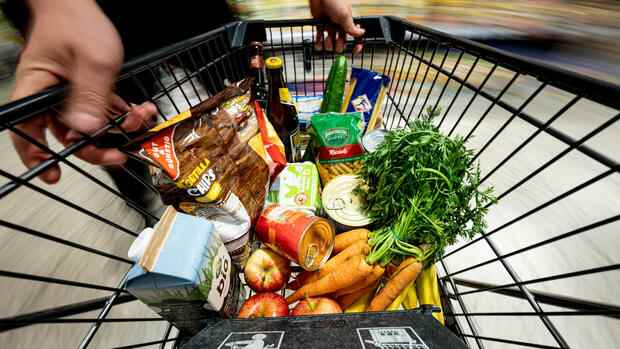Wiesbaden Inflation in Germany rose again even before the end of the tank discount and nine-euro ticket. Goods and services cost an average of 7.9 percent more in August than a year earlier, the Federal Statistics Office confirmed an earlier estimate on Tuesday.
In July the inflation rate was 7.5 percent and in June it was 7.6 percent. “The main causes of the high inflation are still price increases for energy products and food,” said the President of the Federal Statistical Office, Georg Thiel.
The government relief measures still had a dampening effect, although they only applied from June to August. The federal government and economists are preparing the Germans for prices to rise even more.
“All in all, the energy price shock that resulted from the reduction in Russian gas supplies is increasingly affecting the German economy,” warned the Federal Ministry of Economics in its monthly report.
Top jobs of the day
Find the best jobs now and
be notified by email.
The inflation rate could rise again in September because the reduction in the energy tax on fuel and the 9-euro ticket would then no longer have a price-dampening effect. “At the turn of the year, the inflation rate threatens to exceed the 10 percent mark,” said the scientific director of the institute for macroeconomics and business cycle research (IMK), which is close to the trade unions, Sebastian Dullien. An easing is only to be expected in the course of 2023.
Energy cost 35.6 percent more than in August 2021. Household energy rose particularly sharply at 46.4 percent. The prices for light heating oil have more than doubled within a year by 111.5 percent. The price increase for natural gas was 83.8 percent. Electricity cost 16.6 percent more. 16.5 percent more was required for fuels such as petrol.
Rapidly falling purchasing power
Food prices also rose at an above-average rate of 16.6 percent and have risen for the sixth month in a row. Edible fats and oils (plus 44.5 percent) as well as dairy products and eggs (plus 26.8 percent) became significantly more expensive. Consumer prices also rose noticeably for meat and meat products (up 18.6 percent) and for bread and cereal products (up 17.1 percent).
High inflation could plunge the economy into recession. “Due to the rapidly falling purchasing power of private households, there is a risk of a recession in Germany triggered by consumer restraint over the winter,” said IMK Director Dullien.
“The previous relief packages should no longer be able to avert this in their current form.” This could be remedied if the announced electricity price cap was implemented quickly and a concept for the gas price cap was also quickly presented and decided.
The federal government is also preparing for a recession in view of the energy crisis. “German economic output could stagnate or decline in the second half of the year,” according to the Ministry of Economic Affairs.
More: Gas surcharge drives inflation – so gas prices could still be capped.
